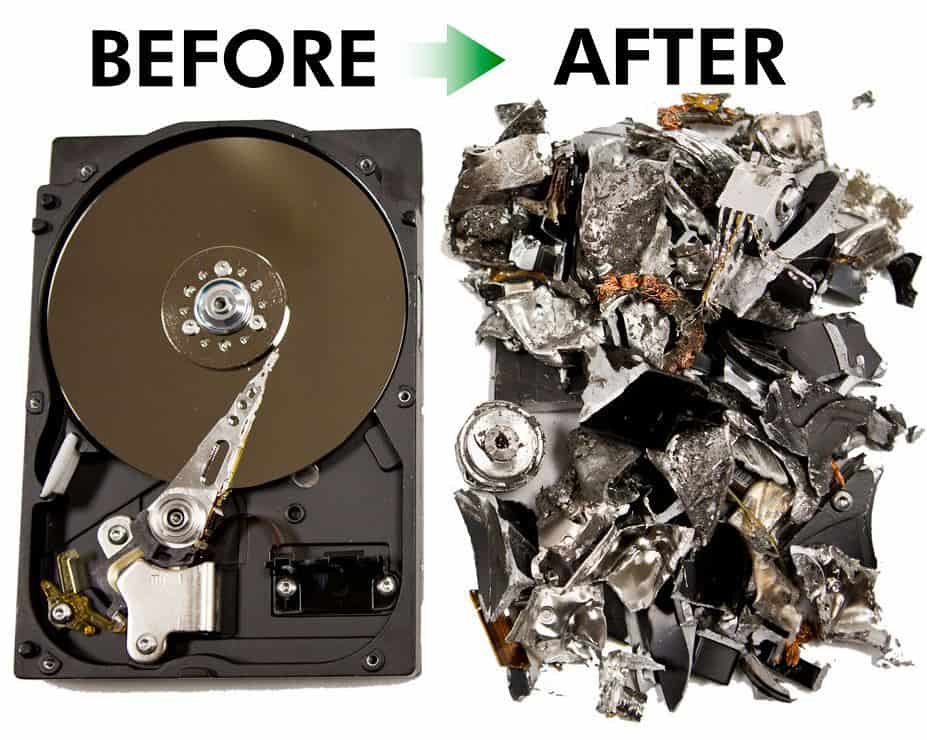Exploring the Importance of Information Devastation in the Context of Computer System Protection Providers and Protecting Confidential Information
In a period where data breaches are increasingly common, the significance of effective information devastation can not be overemphasized. Organizations needs to embrace strict steps to guarantee that sensitive details is not just secured during its lifecycle but likewise decisively eliminated when no much longer needed. The approaches utilized for data obliteration, coupled with conformity to legal criteria, play an essential role in keeping privacy and trust. The ramifications of these practices prolong beyond simple compliance, affecting a business's online reputation and operational stability in the electronic marketplace. What approaches can organizations apply to enhance their information destruction procedures?
Comprehending Information Destruction
Data damage is a crucial element of computer system safety that entails the permanent elimination of information from storage space devices to stop unapproved access and prospective information breaches. In a progressively electronic landscape, organizations face enhanced risks related to sensitive details being improperly accessed or exploited. Efficient data damage safeguards versus these threats, making sure that personal dataâEUR" such as customer information, copyright, and financial recordsâEUR" can not be recuperated after disposal.
Comprehending the relevance of data destruction prolongs past plain compliance with regulative and legal frameworks; it is vital for maintaining business honesty and count on. When information is poorly handled or inadequately ruined, the repercussions can be serious, including financial loss, reputational damages, and lawful responsibilities.

Techniques of Information Removal

One prevalent technique is information cleaning, which entails overwriting existing data with arbitrary patterns multiple times. This technique renders the original data irretrievable, making it a prominent option for organizations looking for to secure personal information.
One more technique is degaussing, which utilizes a powerful electromagnetic field to interrupt the magnetic domain names on storage space tools, effectively erasing the data. This method is particularly effective for magnetic media but is not suitable to solid-state drives.
Physical devastation is an additional durable technique, including the shredding or crushing of storage space tools. This approach warranties that information healing is practically impossible, making it optimal for extremely sensitive information.
Last but not least, security can act as a corresponding method to information removal. By securing data before removal, organizations can add an extra layer of protection, making sure that even if residues are recouped, they continue to be hard to reach without the decryption secret. Each method needs to be selected based upon the level of information sensitivity and the details safety requirements of the company.
Legal Compliance and Information Safety And Security
Organizations must browse a complex landscape of lawful requirements connected to data protection, especially after executing methods of information eradication. Different regulations, such as the General Information Security Policy (GDPR) and the Medical Insurance Transportability and Accountability Act (HIPAA), enforce rigorous guidelines on how companies must manage and get rid of of delicate data. Failing to follow these policies can cause substantial legal consequences, including considerable penalties and reputational damages.
Data damage procedures have to be meticulously documented to demonstrate compliance with suitable regulations and standards. This documentation not only works as evidence of adherence to legal obligations however likewise shows a dedication to guarding sensitive info. Organizations needs to additionally develop clear plans pertaining to information retention and destruction timelines, making certain that information is not held longer than essential.

Additionally, routine audits and evaluations of information destruction techniques are necessary to keep conformity and adapt to evolving lawful frameworks (data destruction). content By proactively addressing lawful demands, organizations can mitigate threats linked with data violations and demonstrate their commitment to information safety. Ultimately, focusing on lawful compliance in information destruction procedures is not just a regulative obligation, yet an essential aspect of a durable data safety and security approach
Effect On Company Reputation
The online reputation of a business can be significantly affected by its approach to information destruction and monitoring. In today's digital landscape, where information violations can occur at any kind of moment, the failing to correctly get rid of delicate information can result in severe consequences. Organizations that improperly manage information destruction danger revealing confidential consumer information, which not only goes against privacy legislations yet also wears down trust fund among stakeholders and customers.
A tarnished track record can result in reduced customer commitment, as customers become hesitant to involve with an organization that has demonstrated carelessness in shielding their data. Adverse publicity surrounding a data breach can have an enduring result, as possible consumers might be prevented by the regarded absence of protection. This can lead to a straight decrease in revenue and market share.
Additionally, businesses that focus on information devastation as component click site of their protection strategy can enhance their reputation by showcasing their dedication to guarding delicate info. By embracing rigid data administration methods, companies can not only minimize risks however likewise place themselves as trustworthy entities in their particular markets, thus strengthening their total brand picture.

Ideal Practices for Secure Disposal
Applying finest practices for secure disposal of information is necessary for reducing risks linked with data violations and making sure compliance with personal privacy guidelines. Organizations should take on an extensive data disposal plan that outlines treatments for both electronic and physical data destruction.
For physical information storage tools, such as difficult drives, shredding or degaussing is recommended to avoid information recuperation. Furthermore, companies must preserve a chain of safekeeping documentation throughout the disposal process, guaranteeing accountability and traceability of disposed things.
For electronic information, making use of software application that complies with market criteria for information cleaning is important. This software program should overwrite existing information several times, making recuperation virtually impossible. It is additionally important to confirm the efficiency of the information destruction process with audits or third-party evaluations.
Educating employees on protected disposal methods includes an additional layer of safety and security, as human mistake can often result in information direct exposure. On a regular basis reviewing and updating disposal policies guarantees positioning with advancing regulations and technological innovations. By implementing these finest methods, companies can considerably minimize the threat of unapproved data gain access to and enhance their general information protection technique.
Verdict
To conclude, information devastation is a basic element of computer protection services that guarantees the security of secret information from unapproved access. Implementing efficient approaches of information elimination, adhering to legal compliance, and identifying the effect on service track record are necessary elements of an extensive data protection approach. By embracing best techniques for safe disposal, organizations can foster trust fund with clients and safeguard delicate data, inevitably adding to a more safe and secure electronic landscape.
In an era where information breaches are increasingly typical, the importance of reliable data devastation can not be overemphasized.Data damage is a crucial part of computer security that includes the permanent elimination of information from storage tools to avoid unapproved access and possible data violations. Organizations should likewise develop clear policies relating to data retention and damage timelines, ensuring that visit here data is not held longer than essential.
By proactively dealing with lawful needs, organizations can alleviate risks connected with information violations and demonstrate their dedication to data security (data destruction). Eventually, prioritizing lawful conformity in data destruction procedures is not simply a regulatory obligation, yet a basic aspect of a robust information protection strategy